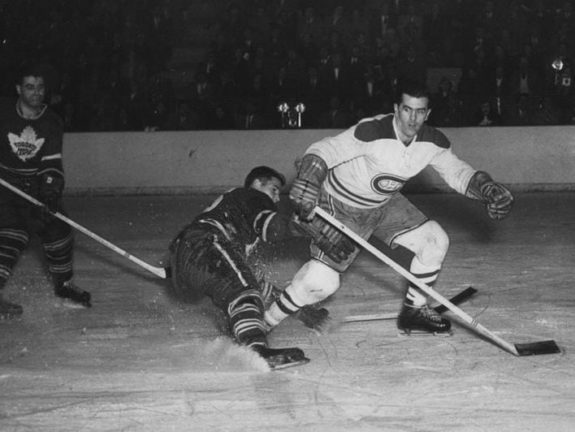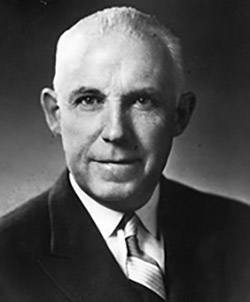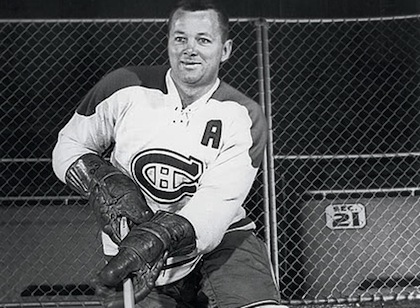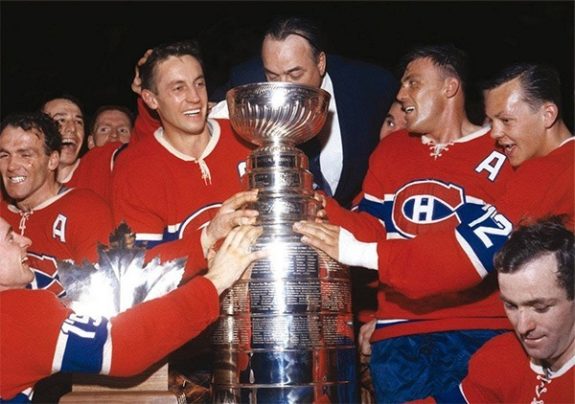In NHL history, only a single franchise has won five straight Stanley Cups. Unsurprisingly, the Montreal Canadiens, with a league-leading 24 championships up to now, accomplished the feat from 1956-60. It’s really only unsurprising in retrospect, though.
Habs as NHL’s Gold Standard
It should be noted, heading into that initial 1955-56 season, the Habs had yet to solidify themselves as the gold standard. Up to that point, they had won seven Cups.
To further illustrate, the original, eventually defunct Ottawa Senators (including as Ottawa HC) had won 11. The Toronto Maple Leafs (including as the Toronto Arenas and St. Patricks) had won nine Cups. Hell, the Canadiens had even been tied with the Detroit Red Wings with seven, which actually serves as an intriguing precursor to the Habs’ five straight, but that’s for later on in this story.
What’s truly significant about the streak is it corresponds to a changing of the guard in Canadiens history between two superstars: Maurice Richard and Jean Beliveau. Beliveau had entered the league in 1950 (alongside Bernie Geoffrion) as a 19-year-old. By then, at age 29, Richard had established himself as a legend, with his infamous 50-goal season (in 50 games) coming in 1944-45.

For all intents and purposes, Richard was the team’s perennial scoring champion at the time. One exception was 1954-55, the season prior to the run, when he got suspended for the balance of the season (and playoffs) as a result of a confrontation with Boston Bruins defenseman Hal Laycoe, an incident, which, a few days later, led to the Richard Riot. As a result of the suspension, Geoffrion went on to pass Richard for the league scoring title on the final day of the regular season that year, prompting Habs fans to actually boo him.
Consequences of Richard Riot
Another consequence of the Richard Riot had the Habs forfeit the two points the night of, on March 17, 1955. Following the suspension, NHL President Clarence Campbell opted to attend the Habs’ next home game, which happened to be against the Red Wings, refusing to back down, even in the face of death threats. While the suspension was the reason behind the riot, Campbell’s presence that following game lit the fuse.

In any case, the two points the Red Wings won eventually provided the balance of victory over the second-place Habs for the regular-season title. Had the Habs gotten the points that night instead, they would have theoretically went on to secure home-ice advantage in the playoffs. Without Richard, they ended up losing the Stanley Cup Final in seven games, coincidentally or not, to the Red Wings, with the home team winning each game in the series.
Granted, the Habs had been trailing against the Red Wings when the riot broke out and may have lost the game anyway, but it’s intriguing to think of the possibilities had fate not intervened as it did, especially if Richard had been allowed to play. As it happens, Habs fans will have to look back on a record five straight Cups from 1956-60 instead of six starting in 1955.
Canadiens Run Roughshod over NHL
Regardless, the backdrop had been set for an unprecedented stretch of dominance, over the course of which the Habs ran roughshod through the league, evidently with a point to prove. For example, the Habs earned 100 points in 1955-56, 24 more than the second-place Wings, with a league-high +91-goal differential, which equated to well over a goal per contest in the 70-game season. The second-place Wings had one of just +35. The third-place New York Rangers had one of just +1.
That 1955-56 season marked both the debuts of Richard’s younger brother, Henri, and head coach Toe Blake behind the bench, not to mention the emergence of Beliveau as the team’s regular scoring leader, with an Art Ross and Hart Memorial Trophy-winning 88 points (47 goals) in 70 games. Richard was second on the Habs with 71 points.
Of course, while the focus was justifiably on Beliveau and the elder Richard over the five seasons, many other Habs legends, who would have their numbers retired (in addition to Henri Richard and Geoffrion), graced the ice of the Montreal Forum. They were Dickie Moore up front, Doug Harvey and Emile Bouchard on defense and, in net, Jacques Plante, who won the Vezina Trophy in every one of the five seasons in question. The Habs also had a monopoly on the James Norris Memorial Trophy, with Harvey winning it in 1956, 57, 58 and 60. Teammate Tom Johnson won it in 1959.

Further evidencing the powerhouse the Canadiens were, each of the above retired numbers played for the Habs in each of the five seasons, with a single exception. Bouchard retired in 1956, with the elder Richard taking over the captaincy for the remainder of the run, after which he retired himself, signifying the end of an era… in more ways than one.
Harvey would serve as captain for a single season before moving on to the Rangers, with Beliveau taking over for him in turn. Far from an indictment of Beliveau’s abilities to lead, the Canadiens would “only” win their next Stanley Cup in 1965. It was the first of two straight and the start of a stretch over the course of which the Habs would win 10 championships in the next 15 years. Undeniably impressive and incredibly dominant, but far from equivalent to five straight.

In effect, it really only makes sense to consider the 15 championships won from 1956-79 as a, coincidentally, 24-year period, during which the Canadiens enjoyed unparalleled dominance. In that sense, 1956 marked the legitimate start of the Canadiens’ dynasty. The five Cups thereafter cemented it.